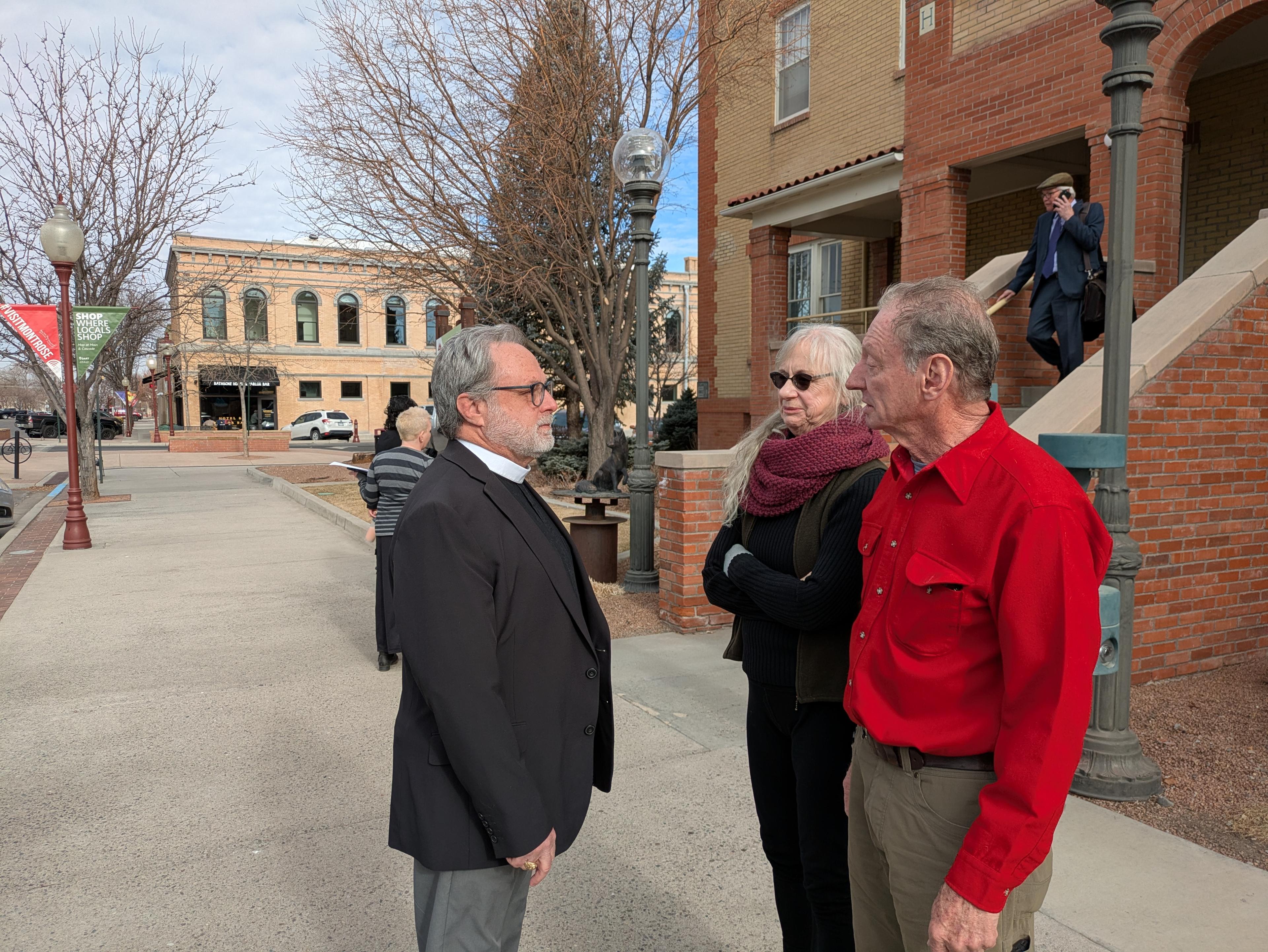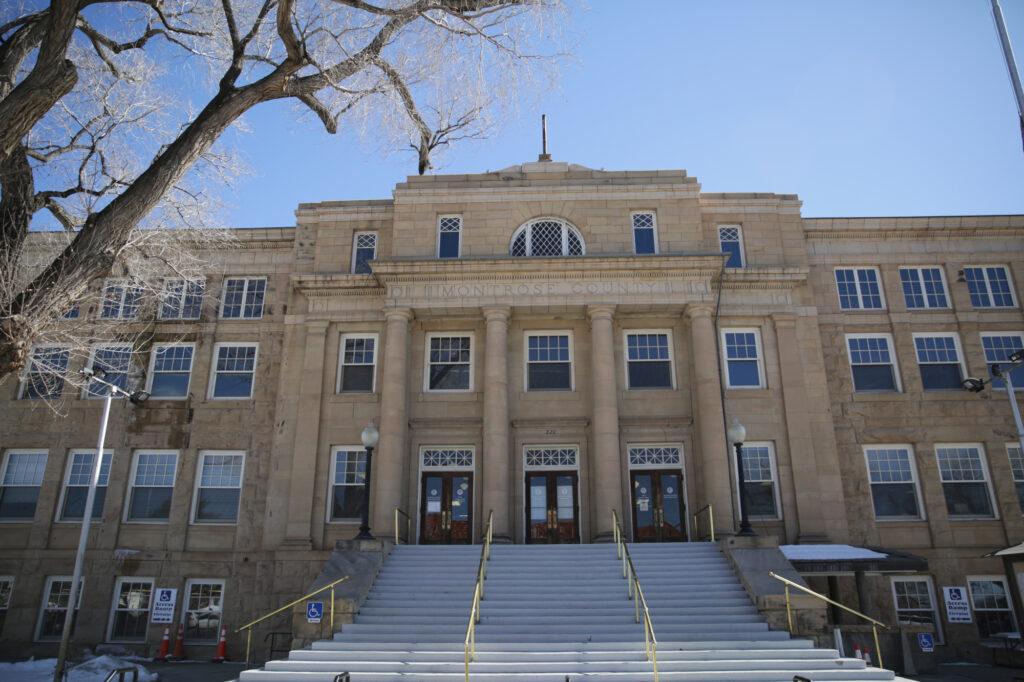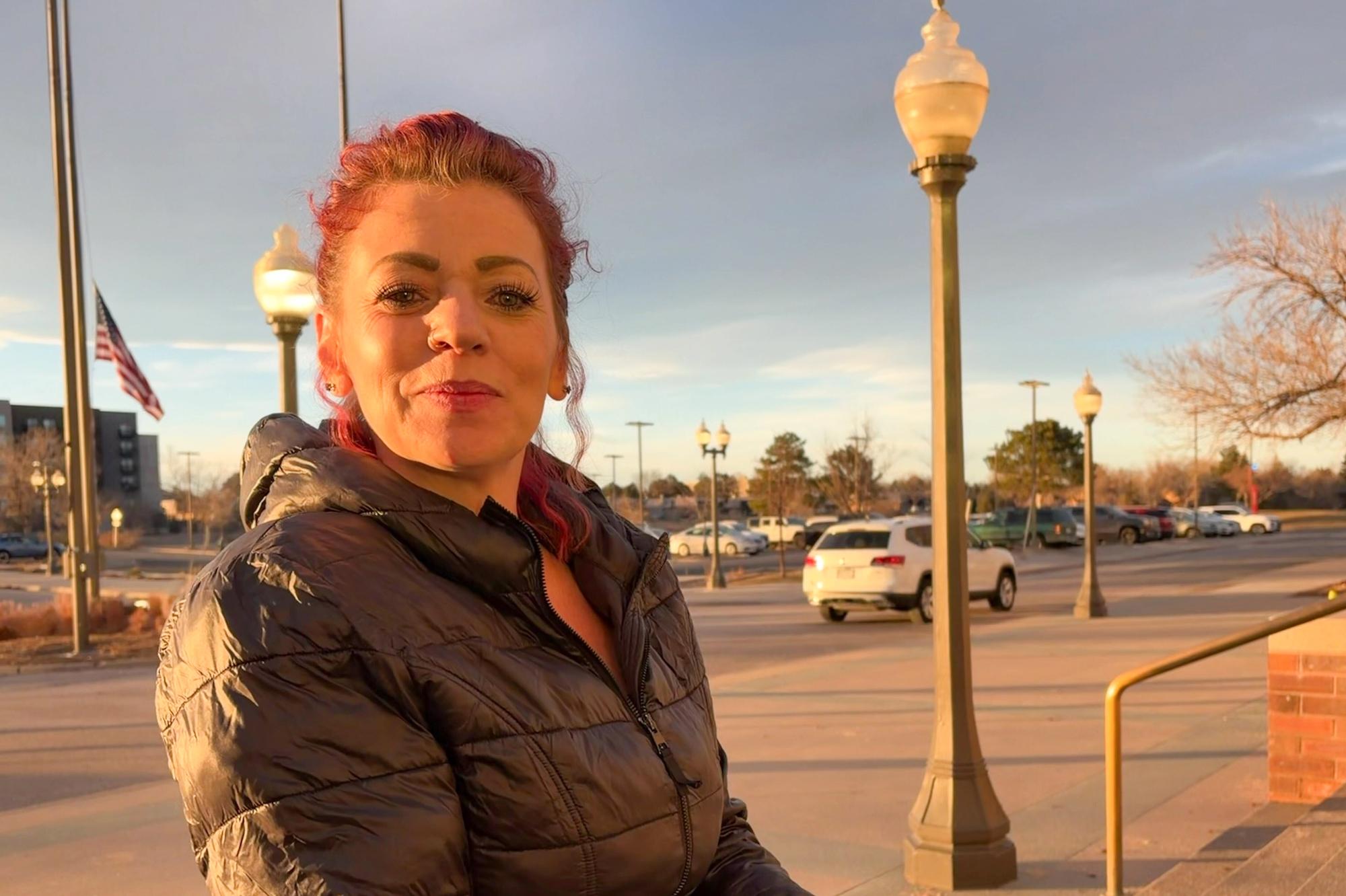
A pastor facing charges for allowing unhoused residents to camp on Montrose United Methodist Church property appeared in municipal Court Thursday.
Reverend Kevin Young amassed a pile of citations from the city of Montrose in recent weeks, with more expected as the camp persists. So many citations have been issued, in fact, that one of the first orders of business for Judge Erin Maxwell was to ask if it was OK to waive the reading of all the citations and ordinances in question.
“You saved me a lot of air,” Maxwell told Young’s attorney, John Fleming, when he assured her they could skip that portion of the proceedings.
The citations were what brought Young into court Thursday. However, the bulk of the hearing was dedicated to the city’s request for an emergency abatement hearing in order to clear the camp as well as a formal discussion on who exactly is the defendant in the case. Attorneys said it would be the pastor, though any penalties issued would go to the church and Young would not be individually liable.
Montrose City Attorney Chris Dowsey pushed for the emergency abatement hearing to be held that afternoon, saying the fire marshal believed the camp to be a “significant fire hazard” and that the county health department had issued a cease and desist letter to the church.
“If this were a minor zoning issue, the city would not be pressing,” Dowsey said. “I wouldn't even be here.”
Maxwell declined to hold the hearing on Thursday afternoon, pointing to scheduling conflicts. Instead, the court will take the issue up on Wednesday, Feb. 19.

Fleming, who is representing Young on the case, took issue with the city’s characterization that the camp posed a significant hazard that must be dealt with immediately. He said the church had already spoken with health officials and fire officials to ameliorate those concerns.
“There is no emergency left for the health department. There is no emergency left for the fire department. The whole process is a way to remove the homeless camp,” Fleming said.
Montrose hit a low temperature of 6 degrees Thursday, according to the National Weather Service in Grand Junction. Speaking after the hearing, Young told CPR News the latest cold snap was the pressing matter, not the state of the camp.
“This is also an emergency. People's lives literally are in jeopardy. They have nowhere to go. They have nowhere to sleep or eat or to warm themselves up. So we're trying to at least meet that need for some people, as many as we can,” Young said.
City officials have said there is an overnight shelter in Montrose — though supporters of the church note that the shelter has strict entry requirements, including not allowing pets. The camp also infringes on nearby property owners, according to the city.
Churches have gone to court over allowing unhoused residents to camp on their property before. Last summer, a federal judge sided with a Castle Rock church in their dispute against the town. In that case, the church was allowing campers on their property, which the town deemed a zoning violation. A ruling in July allowed the church to continue hosting the campers until the case played out.
Young did not formally enter a plea in relation to the dozens of citations he and the church face, though Fleming said they intend to plead not guilty. For now, the camp remains on church property.
“We hear the concerns that are being expressed, but we look at the unhoused and their belongings maybe through a different set of eyes than others do,” Young said. “And I think the way that we look at this challenge has a 2000-year precedent in history and a 250-year precedent for United Methodists in America.”









